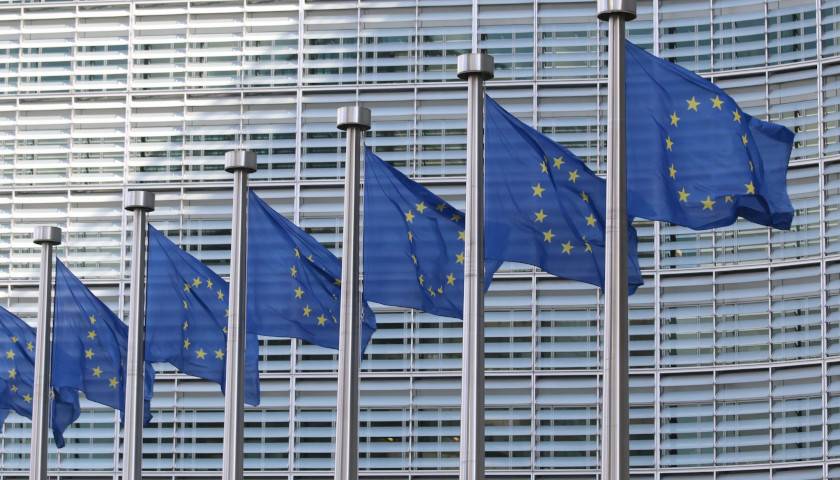by Debra Heine
The European Parliament and the Council of the European Union reached a final agreement this week on the establishment of “European Digital Identity Wallets,” the first central and fully digital identification system for all Europeans.
“Under the new law, the EU will offer its citizens so-called ‘digital wallets’—on a voluntary basis, at first—which will contain digital versions of their ID cards, driving licenses, diplomas, medical records, and bank account information,” the European Conservative reported.
These documents will be recognized as means to access online services throughout Europe, and citizens will be able to prove their identity or share electronic documents from their wallets “with a click of a button,” the legislators hope.
“This marks an important step towards the Digital Decade 2030 targets on the digitalization of public services,” the EU Commission said in a statement Wednesday. “All EU citizens will be offered the possibility to have an EU Digital Identity Wallet to access public and private online services in full security and protection of personal data all over Europe.”
The agreement reached by the co-legislators is now subject to formal approval by the European Parliament and the Council. Once formally adopted, the European Digital Identity framework will enter into force on the 20th day following its publication in the Official Journal.
The agreement came just a few weeks after Christine Lagarde, the head of the European Central Bank, announced that the European Union was moving forward with the development of its new central bank digital currency (CBDC)—the digital Euro.
Conservative EU lawmakers and cybersecurity experts have opposed these developments, warning that large-scale abuse is inevitable in an all-encompassing digital identity system.
Dutch MEP Rob Roos sounded the alarm on X, Wednesday:
“BREAKING: Very bad news. The European Parliament and Member States just reached an agreement on introducing the Digital Identity,” he said.
Roos noted that following the agreement, EU Commissioner Thierry Breton said: “‘Now that we have a Digital Identity Wallet, we have to put something in it…’, suggesting a connection between CBDC and eID.”
Ahead of the the European Parliament’s decision, over 500 privacy and cybersecurity experts from 39 countries signed a joint letter warning that the legislation “fails to properly respect the right to privacy of citizens and secure online communications.”
Roos lamented that most EU lawmakers “ignored all the privacy experts and security specialists. They’re pushing it all through.”
The Dutch conservative said that he is not optimistic, but “it is not too late yet.”
“Parliament still has to vote about this. Let your MEP know that you oppose the Digital Identity and that you want your MEP to vote against it!” he said.
🚨 BREAKING: Very bad news. The European Parliament and Member States just reached an agreement on introducing the Digital Identity, #eID.
Directly afterwards, #EU Commissioner Breton said: "Now that we have a Digital Identity Wallet, we have to put something in it…",… pic.twitter.com/SVC5exas9b
— Rob Roos MEP 🇳🇱 (@Rob_Roos) November 8, 2023
The Biden White House released a “Comprehensive Framework for Responsible Development of Digital Assets” in September of last year.
Catherine Austin Fitts, financial expert and Assistant Secretary of Housing and Urban Development during the H.W. Bush administration, has long been a vocal opponent of CBDC systems.
In a recent interview, she warned that a 100 percent digital system would be controlled centrally and that a person’s money could potentially be limited to a particular geographical area. Such a totalitarian system, she argued, could also allow the State to limit people on what they are allowed to buy.
“Let’s say I want to mandate a vaccine. Your financial transaction ability can be turned off,” Fitts said. “Your access to your financial assets can be denied or stopped if you don’t do what you’re told.”
Edward Dowd, the founder Phinance Technologies and author of Cause Unknown, has also long warned that any CBDC system will be a system of totalitarian control tied to a Chinese-style “social credit score.”
“It just becomes a social engineering tool, the ultimate control-freak gizmo,” he said during an interview last year.
Edward Dowd… Central Bank Digital Currency (CBDC) tied to your social credit score pic.twitter.com/jN7gjb4o5T
— Pelham (@Resist_05) June 14, 2022
The Federal Reserve has made no decision on issuing a CBDC and has said it would only proceed with the issuance of one with an authorizing law.
– – –
Debra Heine reports for American Greatness.




